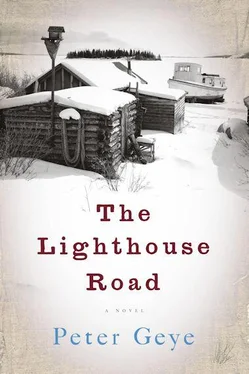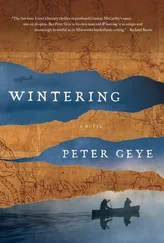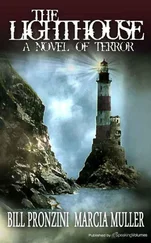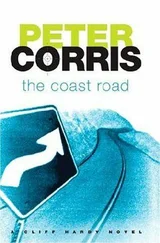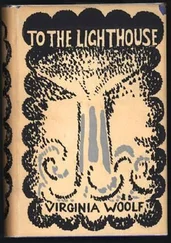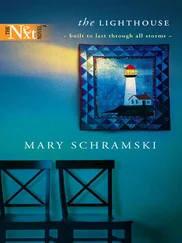"But we'll take this for good measure," he said aloud, and he dipped the teakettle into the barrel, filling it to the brim.
He hammered the lid back onto the barrel and carried the whiskey to the fish house.

H e wasn't expecting to see her inside but was glad when he did. Sitting under the open window, in the guttering candlelight, her hair down the way he liked. There she was. He stood in the dark corner of the fish house looking at her, she looking back. Neither spoke. It occurred to him, as he untied his bootlaces and kicked them off, that the candlelight was doing the same work inside that the lightning had been doing out: throwing just enough light to lead him where he needed to be.
Before he went to her he stopped at the end of the workbench he used as his kitchen counter and found two clean coffee cups. He poured a finger of hooch into a cup, swallowed it quickly, then poured another finger in each.
He stopped short of her, stopped short of the light from the candle, stood there with the coffee cups. His very favorite thing was to watch her rise, to watch her long arms and legs and hair simply move. She moved— in the middle of the night, in candlelight— with the almost imperceptible slowness and suppleness of the seiches.
When she flipped her hair and looked down, he said, "What's this, Rebekah?"
She glanced up at him, pouted. "Only a fool who didn't care about anything would have gone out on that lake tonight."
"A fool, you say?"
"A proper fool. Yes."
He stepped to her, set the coffee cups on the floor, and lifted her from the chair on which she sat. "I'd never convince you or anyone I wasn't a fool, but I didn't have a choice. I don't make that run and Marcus Aas does, then he wins favor. Aas wins favor and I lose the skiff. I lose the fish house —" his voice trailed off. He thought better of saying, I lose the fish house and we've got nowhere to go.
She looked up at him for the first time since he'd stepped in from outside. The look that came over her face was as a mother's. She reached up and feathered his damp hair away from his eyes.
They looked at each other for a long moment before Odd set her down. He bent and picked the whiskey off the floor, handed her one and they stepped to his bunk. They drank their whiskey together, two sips apiece and in harmony. He slid off his soaked pants and hung them over the back of the chair. Did the same with his shirt. He lifted first his left foot to remove his sock, then his right. He lay down. Though he was a short man— only five foot five — he was also long-armed and broad-shouldered, he had a chest like a woodstove, was as hairy as a bear. Swallowing her up was as easy as putting his arms around her, which he did as she lay down beside him, using his bare arm as her pillow.
He took a deep breath, closed his eyes. It occurred to him that he conducted all the best and easiest hours of his life here in the fish house: his heavy slumber, what few idle afternoons he had whittling and carving, the poker games, the long winter mornings spent mending his gill nets. And now his hours with Rebekah, here under his arms, her impossibly soft skin and the attar of rose in her hair. Their life together went back to the hour of his birth, and he supposed their time together now was something like religion.
"How long can you stay?" he said.
"He was soused at four o'clock when the card game ended. He'll sleep until at least nine. I've time."
Outside he could still hear the wind rocking the trees and the pounding surf out on the point. If there'd been no wind or breakers on the lake, he'd have heard the Burnt Wood River running hard with fresh summer rains.
"A bigger boat would make life a hell of a lot easier." He reached to the upturned fish box beside his bunk and took his carving from it, held it up to the candlelight, rode it along the shadows on the wall. The carving was of a boat, the boat he dreamed about. He'd spent all of Christmas week whittling it from a birch bole, whittled the finest details: the motor box, the canopy, the gunwale, and even a toe rail. He'd fashioned a couple of fish boxes and set them in the cockpit. "Something with a little bow to her, a strong, high sheer. A cockpit instead of that goddamned spray hood. A Buda inboard. A thousand pounds of keel and skeg." A gust of wind blew through the open window and the candle shadow raced up the wall. He moved the carved boat with it. "And a bell. I damn well want a bell. You'll know I'm home by its ringing." He felt her nestle into him, she loved this hopeful part of him, thought it innocent and childlike. "So big I'll need a berth in the harbor, next to the tugs and charter boats."
A strong breeze came through the window and blew out the candle. He set his carving down and looked out at the night.
"A boat like that and I could make the runs down to Port Arthur myself. I could do business directly all up and down the shore. Could take a boat like that clear across the lake. Clear across to the Soo. We could go anywhere. Anywhere, Rebekah."
"I'm too old to go anywhere."
"That's nonsense."
"Nearly twice your age."
"So what? You're the prettiest gal in Gunflint."
Now she smiled and looked at him again. She kissed him lightly on the lips. "Tell me more about the boat. Where would you take me?"
"Where'd you want to go?"
She took a deep breath, was thinking earnestly about where she could get. "What's the place farthest away in the world?"
"I guess Norway's a fair piece."
" Where your mother was from."
"Sure, where she was from."
"Let's go to Norway, Odd. In your boat. What's it like, do you think?"
"I've heard tell it ain't unlike it is here."
"Oh, Lord! Let's choose someplace else, then."
"I told you we could go anywhere."
"Anywhere," she repeated.
They lay in silence, each picturing anywhere as though they might someday get there. She fell asleep. He could tell by how she warmed. So he tilted his head back and looked out the window.
Here was the daybreak, the first promise of light, coming as deliberate as Rebekah crossing a candlelit room. And there were the pines, swaying in the old wind as though this aubade were played in the slowest of time.

T wo days and two nights of oblivion ended on a Friday morning when Hosea woke from a dead man's sleep. A dozen champagne bottles littered the floor in a swath of dull sunlight. He pressed his eyes and imagined he could feel the dream retreating to its place in that part of his mind he could only access in a state such as he'd roused those days in the Chicago bagnio.
He found his pants under the bed and checked his pocket watch. He checked his billfold, too, which still held a stack of fifty-dollar banknotes. He kicked the threadbare bed linens from his legs and swung his still-stockinged feet onto the floor. The rush of blood to his head was swift. He was so parched he could not swallow. He needed a drink of water, so he rose and stood still until he found his balance.
But for his socks he was naked. His drawers hung over a lampshade, his linen shirt was tangled with the duvet on the floor at the foot of the bed. As he dressed, memories of the last forty-eight hours came back to him piecemeal, each more lecherous than the one before. When he was dressed he took stock of the room. Not bad as such rooms went. A carpet on the floor. A bed with a proper headboard. An electric lamp. An enormous mirror on the wall opposite the head board. A brass ashtray. A table and chair in the corner with an empty decanter and four used snifters, three stained with lip rouge.
Читать дальше
